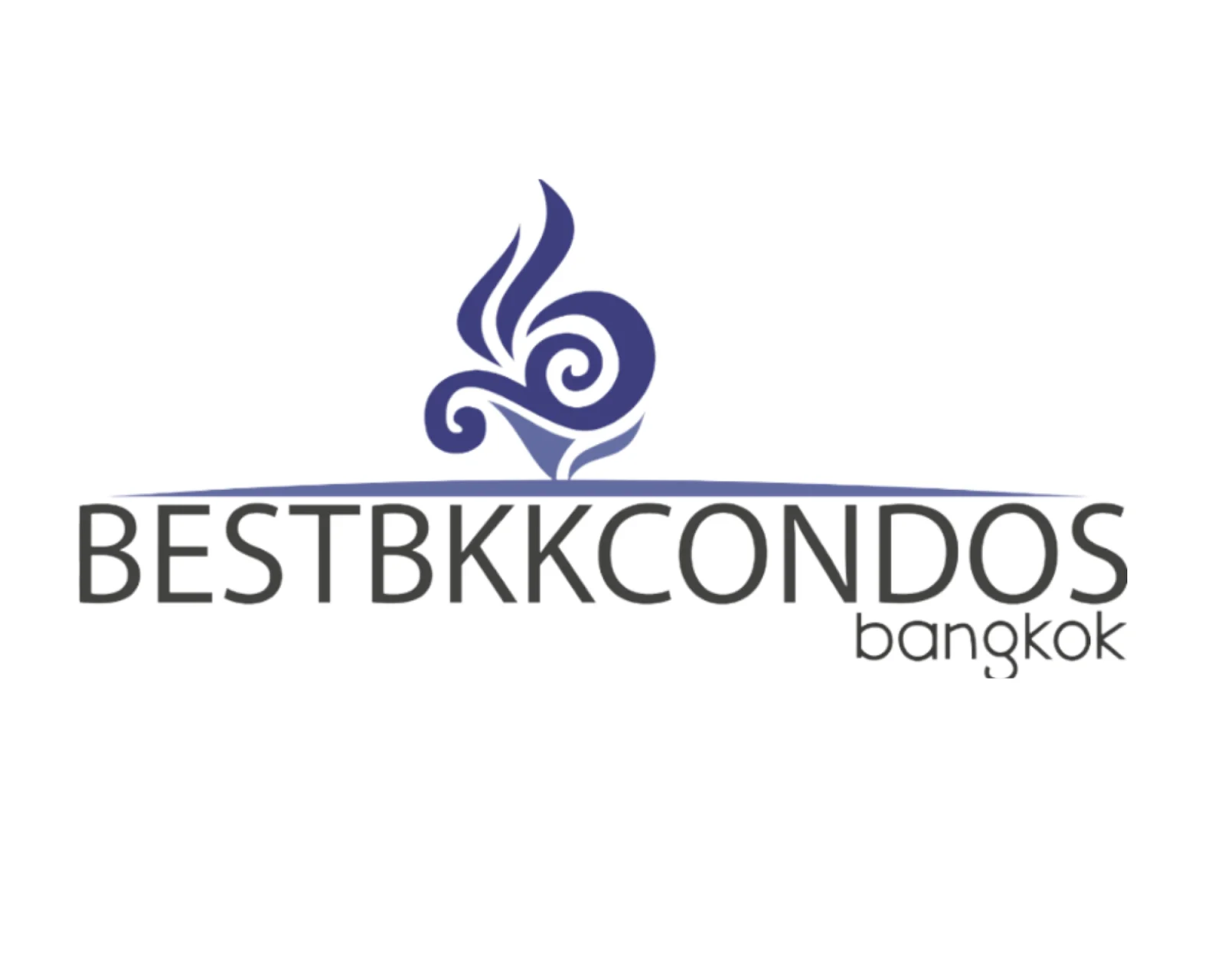Are you dreaming of owning a slice of paradise in Thailand? With its stunning beaches and vibrant culture, buying property here could be your best decision yet! Navigating the legal requirements and regulations can indeed be daunting, but don’t worry—this guide is here to simplify the process for you. Let’s explore the essential legal aspects of foreign ownership together, ensuring your investment is sound.
Key Takeaways:
- Discover how foreigners can own property in Thailand, with key restrictions to keep in mind.
- Learn about the purchasing process and why thorough due diligence is crucial for your investment.
- Explore financing options and find out if personal ownership or setting up a Thai company is right for you.
Why Consider Buying Property in Thailand?
Picture yourself sipping coffee on a balcony overlooking the stunning coastline. Buying property in Thailand not only turns this dream into reality but also secures a profitable investment. Thailand’s favorable property laws for foreigners and attractive rental yields create a unique investment landscape. From chic condos to luxurious villas, the options are endless.
As tourism and foreign investment grow, cities like Chiang Mai and Hua Hin are becoming hotspots for property buyers. Navigating the local property landscape provides you with a wealth of options that cater to various lifestylesand investment objectives. Whether you’re seeking a luxurious beachfront bungalow or a practical urban studio apartment, the variety available ensures that you can find the ideal home or investment opportunity, whether for long-term residence or vacation purposes.
By leveraging your knowledge of local regulations and market insights, you can make informed decisions that reinforce Thailand’s reputation as a lucrative investment haven.
Legal Requirements for Foreigners
Understanding the legal requirements can be a maze for newcomers. Familiarizing yourself with the Thailand Civil and Commercial Code is a must for smooth property transactions. It is essential for expatriates like you to understand these legal frameworks to ensure that your property investments comply with local regulations, which can vary significantly between regions such as Bangkok, Pattaya, and Phuket.
Consulting with a qualified property lawyer makes the process easier. Think of them as your trusted ally in navigating ownership transfers and documentation.
Restrictions and Regulations for Foreign Ownership
Did you know that as a foreigner, you can own up to 49% of a condo project? But don’t forget, buying land comes with stricter limitations aimed at safeguarding local interests. These rules primarily dictate the types of properties and the extent of ownership that foreigners can have.
While you can own up to 49% of the total area of a condominium project, purchasing land and houses comes with much stricter limitations. Specifically, you cannot own land outright; instead, you are restricted to leasing land for a maximum of 30 years, with an option to renew. This limitation complicates long-term investment plans. Regarding houses, you may need to navigate complex arrangements, such as establishing a Thai company to hold the title deed, which further complicates the process.
These regulations will influence your investment strategies, so think carefully about potential resale value and marketability.
Types of Property Foreigners Can Own
Thinking about owning a slice of paradise in Thailand? Condominiums might just be your best bet for enjoying outright ownership, but let’s dive into what that entails. While condominiums are typically the easiest property typefor foreigners to navigate, they come with regulations—specifically, foreign ownership must not exceed 49% of the total units. Villas attract those desiring luxury, yet they often involve complex leasehold agreements or local partnerships. Houses can be particularly appealing for families seeking long-term stability; however, understanding land ownership laws is key.
Every property holds untapped potential—whether it’s generating rental income or becoming your vacation retreat. Imagine waking up in your own villa, feeling the sun on your skin, and knowing this beautiful property is an investment that will pay off in the long run. Each property type presents potential advantages, from rental incomeand capital appreciation to personal use. However, as a foreign investor, you must carefully weigh these benefitsagainst the risks associated with fluctuating property values and the challenges of regulatory compliance.

Ready to embark on your property journey in Thailand? Here’s your step-by-step guide to making that dream a reality!
Purchasing property in Thailand can be a rewarding endeavor, but it necessitates a methodical approach to effectively navigate t
Purchasing property in Thailand can be a rewarding endeavor, but it necessitates a methodical approach to effectively navigate the various steps involved. From researching to closing the deal with a real estate agent, every phase is crucial. Each step ensures you’re well-informed and confident.
This step-by-step guide is designed to provide me with comprehensive insights into the property-buying process in Thailand, ensuring that I am well-informed and prepared to tackle each stage with confidence. It includes essential actions such as:
- Conducting due diligence
- Understanding fees
- Ensuring that proper documentation is in place
1. Research and Identify Your Needs
What do you want in a property? Start by identifying your needs—type, location, and budget—because understanding the Thai real estate market is key to success. The first step I take when considering property acquisition in Thailand is to conduct thorough research and clearly identify my needs and preferences regarding the type of property, location, and budget.
Understanding the Thai real estate market, including trends and pricing, significantly influences my investment decision, ensuring that the property I choose aligns with my long-term goals. This process often involves consultations with real estate agents, gathering insights on properties across various regions, and familiarizing myself with the legal aspects of property ownership in Thailand.
To effectively navigate this complex landscape, I consider what matters most to me, such as proximity to amenities, lifestyle preferences, and the property’s potential for appreciation.
Utilizing online property platforms allows me to access valuable data on market dynamics and availability, while networking with local expats provides firsthand experiences that are incredibly informative. Connecting with property lawyers or local consultants is vital for compliance—this can save you from costly mistakes down the line.
Ultimately, the combination of personal introspection and professional guidance enables me to make informed decisions that resonate with both my immediate needs and future aspirations.
2. Find a Reputable Real Estate Agent
Wondering how to find the right real estate agent in Thailand? Look for someone who truly understands the local market. Finding a reputable real estate agent in Thailand is crucial for successfully navigating the property buying process. A skilled agent will streamline the buying process, ensuring you make informed choices and steer clear of common pitfalls.
Engaging a qualified real estate agent not only streamlines the process but also ensures I make informed decisions and avoid potential pitfalls. When searching for an agent, I prioritize those with extensive experience in the specific area I’m interested in and a proven track record of successful transactions. Their local market knowledge allows them to offer valuable insights into property values, neighborhood dynamics, and trends that could influence my investment.
Communication skills are equally important; an effective agent should be responsive and transparent, ensuring I remain informed throughout the process.
Are you considering buying property in Thailand? One of the first steps to a successful purchase is finding the right agent, and here’s how I ensure I choose the best one for my needs: I consider reading reviews, asking for referrals, and conducting interviews to assess their understanding of my needs. Ultimately, building a good rapport with my agent enhances the experience and makes the journey of purchasing property much more enjoyable.
Wondering how to find the right real estate agent in Thailand? Look for someone who truly understands the local market. For more insights, check out our guide on Finding a Good Real Estate Agency in Bangkok.
3. Choose the Right Location
Choosing the right location for my property investment in Thailand is crucial. Popular destinations like Bangkok, Phuket, Pattaya, and Chiang Mai offer a rich blend of cultural experiences and amenities, catering to diverse buyer needs while significantly influencing my investment’s potential return.
When analyzing locations, I consider these key factors:
- Proximity to essential services
- Tourism potential
- Local infrastructure
This ensures my property meets my expectations and aligns with my investment goals.
I recognize the importance of staying informed about future development plans and emerging market trends. Staying informed about future developments is essential. I keep an eye on areas marked for infrastructure improvements, as these are often the next big investment hotspots.
Therefore, conducting thorough due diligence in assessing both current conditions and future prospects is essential for securing a successful real estate venture.
4. Understand the Purchasing Process
Navigating the purchasing process in Thailand can feel overwhelming for foreign buyers, but it doesn’t have to be. Here’s a straightforward guide to help you through the essential legal steps and documentation required for a successful transaction:
- Making an offer
- Negotiating terms
- Signing the Sales and Purchase Agreement
- Registering the property with the Land Department
Each phase requires careful attention to prevent misunderstandings. I always advise buyers to conduct thorough property inspections to assess the condition and value of the property before finalizing their decision. Property inspections are not just a formality; they’re your assurance that what you’re buying truly meets your standards and expectations, ensuring you invest with confidence.
It is equally important to fully comprehend the details outlined in contracts, as these legal documents bind both parties to the agreed terms. Successfully completing the registration process not only secures ownership but also formalizes the transaction.
Given the complexities involved, having experienced legal guidance at every step is crucial. This ensures compliance with local laws and protects the buyer’s interests against potential pitfalls, providing much-needed peace of mind.
5. Make an Offer and Negotiate
Making an offer and negotiating the terms of the contract are crucial stages in the property buying process in Thailand. During this time, both buyers and sellers have the opportunity to articulate their expectations and work toward a mutual agreement.
I believe that an effective negotiation strategy involves a comprehensive understanding of current market trends, the seller’s circumstances, and any potential issues with the property that may impact its value. Successfully navigating this phase allows me to secure favorable terms, ultimately leading to a smoother transaction.
I always start by conducting a thorough market analysis to assess the property’s worth, which includes researching recent sales of similar homes in the area. I find that timing can be critical; making a competitive offer shortly after viewing a desirable property demonstrates my interest and can help prevent bidding wars.
Maintaining open lines of communication with the seller is also essential. Establishing a rapportfosters goodwill and can lead to more amicable negotiations.
When drafting the contract, I ensure it includes essential clauses regarding contingencies, deadlines, and any agreed-upon repairs, as these elements are vital for safeguarding the interests of both parties throughout the process.
6. Conduct Due Diligence and Legal Checks
Conducting due diligence and legal checks is a crucial step for me to ensure that the property I intend to purchase in Thailand is free of any legal encumbrances or issues. This process involves verifying the property’s ownership, checking the title deed for accuracy, and confirming that there are no outstanding debts or disputes associated with the property.
Navigating these complexities can be daunting, but don’t worry. With experienced legal guidance, you can protect your interests and enjoy peace of mind. Ready to take your first step toward owning property in Thailand? Let’s connect and make it happen!
Thinking about navigating the legal landscape while buying property in Thailand? Engaging a qualified property lawyer can make all the difference. A skilled property lawyer isn’t just an option; they’re a crucial ally who can safeguard my interests and help me navigate potential risks.
Not only do I need to investigate local zoning regulations, but assessing environmental issues and potential development plans in the surrounding area is equally important, as these factors can significantly impact property value and livability.
A property lawyer plays a vital role in conducting these thorough checks, as they possess the expertise to identify possible risks and protect my interests as a buyer. By collaborating closely with a legal professional, I can feel confident that I am making a well-informed decision.
7. Sign the Sales and Purchase Agreement
Signing the Sales and Purchase Agreement marks a pivotal moment in my property buying journey. This contract outlines critical terms that I must adhere to, including the purchase price and payment schedule. Understanding the specifics of this legally binding contract protects my rights as a buyer while also respecting the seller’s rights, giving us both a clear framework for the transaction.
Having a thorough grasp of the key components of the agreement is vital to preventing potential disputes and misunderstandings later on. Key components to understand include:
- Contingencies
- Warranties
- Deadlines for inspections or financing arrangements
I find it advisable to carefully review the document before signing, ensuring that all terms are clearly defined and satisfactory. Important elements, such as deadlines for inspections or financing arrangements, should not be overlooked. Consulting legal counsel is also a prudent step to ensure that my interests are protected, facilitating a smooth transaction and successful property transfer.
8. Transfer Ownership and Pay Taxes
Imagine the excitement of officially owning your property in Thailand—let’s make that dream a reality by transferring ownership and paying the necessary taxes at the Land Department. This critical procedure formalizes my legal rights to the property. It includes registering the title deed in my name and ensuring that all taxes, such as transfer fees and common area maintenance fees, are settled. Understanding the tax implications and associated fees is essential, as it can significantly impact the overall cost of the property.
To initiate the ownership transfer, I must present specific documentation to the Land Department, including:
- The original title deed
- My identification papers
- Proof of payment for the property
I should also be prepared to address various taxes, including the transfer tax, which is typically calculated as a percentage of the property’s value, along with the local tax on property transfers.
Completing these steps secures my stake in the property, offering peace of mind. Ready to take the next step? Let’s get started on the paperwork!

Additional Considerations for Property Buyers
Beyond the basic steps of purchasing property in Thailand, there are additional considerations that can truly enhance my investment experience and ensure long-term satisfaction. Financing options, including mortgages available to foreign buyers, are instrumental in facilitating property purchases. Furthermore, having a solid understanding of property management and maintenance is essential for maximizing rental yields and preserving property value.
As a foreign buyer in Thailand, exploring financing options is crucial. Mortgages can be one of the best ways to make my dream property a reality, but I need to understand what banks require to get the best possible terms.
By taking these additional aspects into account, I can make more informed decisions that align with my personal circumstances and investment objectives.
Financing Options and Mortgage Requirements
As a foreign buyer looking to purchase property in Thailand, I have access to various financing options, with mortgages being one of the most common methods to facilitate my investments. While many Thai banks provide mortgage services to expatriates, it is essential for me to understand the specific requirements—such as down payments, income verification, and interest rates—to secure favorable terms.
By exploring different financing options, I can find a solution that aligns with my financial capabilitiesand investment goals. There are different types of mortgages available to cater to my needs. For instance, fixed-rate loans offer the stability I seek against fluctuating interest rates, while variable-rate options may provide lower initial payments.
Ready to invest in Thailand’s vibrant real estate market? First up, you’ll need to meet some eligibility criteria, like proving your income and credit history, and possibly spending some time in the country. The application process can feel a bit overwhelming, but gathering the right documents and consulting local professionals can steer you in the right direction.
Understanding how financing methods fit into your investment strategy is essential—they can significantly affect your cash flow and return on investment.
Before embarking on your property purchase in Thailand, it’s crucial to understand the local laws and the specific regulations for foreign buyers. To help guide you through this process, you can refer to reliable resources like Be Laws, which provides comprehensive information on the legal steps and requirements to follow.

Considering property ownership in Thailand?
You’re faced with an important choice: should you hold your property in a Thai Limited Company or take the plunge as an individual? Establishing a company can serve as a strategic method to navigate certain restrictions on foreign ownership, especially concerning land and houses, thereby expanding your investment opportunities.
It is crucial to evaluate the benefits and complexities associated with setting up a company against personal ownership, as both options carry distinct advantages and legal responsibilities.
One of the biggest perks of setting up a Thai Limited Company is that it opens the door for foreign nationals to own land indirectly. This is a game-changer for long-term investors looking to make their mark in the Thai property market. Here are some key advantages:
- Indirect land ownership: Allows foreign nationals to own land indirectly.
- Tax benefits: Potential tax advantages for investors.
- Streamlined operations: Facilitates easier management of rental properties.
On the flip side, personal ownership is often simpler and more straightforward, with fewer management responsibilities that can appeal to newcomers.
Effective Property Management and Maintenance
Effective property management is key to maximizing your rental yields and preserving the value of your investments in Thailand. Whether you own a chic condo in Bangkok or a stunning villa in Phuket, mastering tenant relations and local regulations can elevate your property experience.
Bringing in a professional property management service can take the stress out of day-to-day operations, ensuring that your property remains well-maintained and compliant with local laws.
For foreign buyers like myself, this knowledge becomes even more essential, as navigating the intricacies of Thailand’s rental market can be overwhelming. An effective management strategy not only fosters positive tenant relations but also facilitates timely rent collection and the establishment of appropriate lease agreements.
Additionally, professional services can provide proactive maintenance solutions, reducing the likelihood of costly repairs and enhancing tenant satisfaction. Ultimately, effective management leads to higher rental yields and contributes to the long-term success of my investment ventures, making it a critical component of property ownership in this vibrant market.
Frequently Asked Questions
What are the legal requirements for buying property in Thailand?
In order to buy property in Thailand, you must have a valid passport and a non-immigrant visa. You must also obtain a Foreign Exchange Transaction Form (FETF) from a Thai bank to transfer funds from overseas. If you’re still curious about the buying process or have more questions, feel free to reach out—we’re here to help!
To better understand the legal framework surrounding property ownership in Thailand, particularly for foreign buyers, this article from Thailand Law Online provides an in-depth look at the regulations and processes involved in acquiring real estate in the country.”
What is the step-by-step guide for buying property in Thailand?
Follow these steps for a smooth buying process:
- Hire a reputable agent or lawyer.
- Find a property that meets your criteria.
- Negotiate the price and sign a reservation agreement.
- Pay a deposit and conduct due diligence.
- Sign the contract and complete the ownership transfer.
If you’re still curious about the buying process or have more questions, feel free to reach out—we’re here to help!
To better understand the legal framework surrounding property ownership in Thailand, particularly for foreign buyers, this article from Thailand Law Online provides an in-depth look at the regulations and processes involved in acquiring real estate in the country.
Do I need to pay any taxes when buying property in Thailand?
Yes, as a foreign buyer, you’ll need to budget for a few taxes, including a transfer fee, stamp duty, and withholding tax. These typically total around 6.3% of your property’s appraised value. If you’re still curious about the buying process or have more questions, feel free to reach out—we’re here to help!
What type of properties can foreigners buy in Thailand?
Foreigners are allowed to buy condominium units, but they are restricted from owning land in Thailand. However, they can purchase land through a leasehold agreement of up to 30 years with an option to renew for another 30 years. If you’re still curious about the buying process or have more questions, feel free to reach out—we’re here to help!
How long does the process of buying property in Thailand usually take?
Curious about how long it takes to buy property in Thailand? While the process can span from 1 to 3 months, patience is key. Rushing could lead to potential legal or financial pitfalls.
What are the benefits of using a real estate consulting company for buying property in Thailand?
Considering a property purchase in Thailand? A real estate consulting company like BestBKKCondoscan be your best ally. They offer tailored advice and legal guidance, which simplifies your journey.
- Tailored Advice: Get personalized recommendations based on your needs.
- Legal Guidance: Navigate the complexities of Thai property law.
- Market Insights: Make informed decisions with up-to-date information.
- Experience with Foreign Buyers: Enjoy a smoother transaction process tailored for non-residents.
BestBKKCondos helps you navigate the property market in Thailand, ensuring a seamless and hassle-free experience. Ready to embark on your property journey in Thailand? Contact us today to discover how we can help you make your dream a reality!



